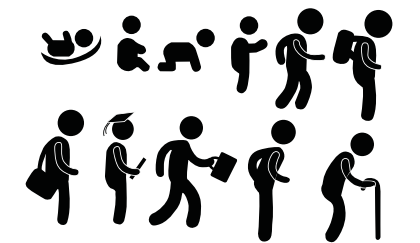Chapter: 11th Home Science : Chapter 2 : Human Development and its Challenges
Human Development and its Challenges
Human Development and its
Challenges
INTRODUCTION
The study of human development can be traced
back to the 18th century. The first effort towards the study of the
child based on direct observations were initiated by Darwin (1809-82) and
Preyer (1841-97). They maintained careful notes on the devel-opment and
behaviour of individual chil-dren over a period of years. Stanley Hall
(1844-1924) in United States of America, and Alfred Binet (1857- 1911) in
France carried out scientific investigation to under-stand the causes of human
behaviour.
Hall studied the concepts of children and published
his finding in the book “The content of Childrens mind” in 1883. The first
intelligence scale was published in 1905 by Binet. A discipline of science
called “Human Development” emerged in the twentieth century in order to
under-stand the patterns of development from conception to the period of old
age.
In this chapter on human development we will be able to understand the stages in the life span of a human being, the developmental changes and develop-mental tasks in each stage starting from prenatal stage to old age.

IMPORTANT TERMINOLOGIES IN HUMAN DEVELOPMENT
Growth: It is defined as
physical changes in body size, structure, bodily dimensions and increase in magnitude, muscular strength and organs.
Development: It is a progressive
series of changes in an orderly, coherent pattern whereby an individual
adapts to their environment. Development includes physical characteristics
(height, weight), intellectual functions (creativity, performance of
intelligence) and social characteristics (independence, aggressiveness).
Maturation: It is development of
the organism as a function of time or age; it refers to neuro physiological
and biochemical changes such as the time a child’s teeth erupts, the child’s
developing ability to talk, walk etc.
Learning and Experience: It is any relatively
permanent changes in thought, feeling and behaviour caused
by interaction with the environment.
Maturation and Learning
Interrelation: Learning and maturation cannot be iso-lated from each other.
Development is the result of interaction of maturation and learning. This is
clear in motor development especially in postural responses, loco-motion and
manipulation. In summary, development is a multifaceted and complex process,
involving gains and losses, growth and aging and more are brought about by both
maturation and learning.
Related Topics